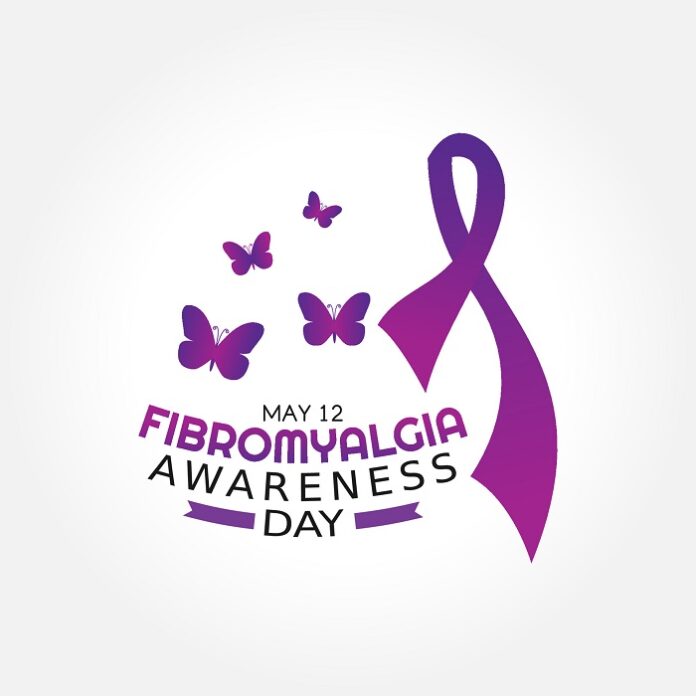Abstract
Chronic Fatigue Syndrome (CFS), also called myalgic encephalomyelitis (ME/CFS), is a chronic, debilitating condition of extreme fatigue while Fibromyalgia (FM) is a chronic condition that causes widespread musculoskeletal pain. Fatigue, widespread pain, sleep issues, and cognitive difficulties are symptoms common to both conditions, with similar triggers like physical or mental exertion.
The diagnosis needs high clinical awareness and suspicion, and should be made after ruling out any underlying illness or medical condition. Lifestyle modification with diet, sleep and stress management, pain management, supportive supplements, physical therapies and counselling are important modes of treatment for both conditions.
Keywords: Chronic Fatigue Syndrome (CFS), Myalgic Encephalomyelitis (ME), Fibromyalgia (FM), Post Exertional Malaise (PEM), Pain management
INTRODUCTION
We all experience days of immense fatigue or body pain, where the body and mind can’t push themselves any longer. This may last for a day or two, and maybe even more, but with adequate rest and sleep, along with some relaxing or pleasurable activities, we spring back to our work schedules and daily routines.
But a feeling of long-term tiredness, drop in energy levels or body pain which lasts for many months, can lead to difficulty in daily functioning and compromised quality of life. Both chronic fatigue and fibromyalgia are seen more in the 30-50 years age group, and are slightly more common in women. May 12th is Myalgic Encephalomyelitis/Chronic Fatigue Syndrome (ME/CFS) and Fibromyalgia International Awareness Day to raise awareness about these chronic, debilitating conditions. The date is chosen because it is the birthday of Florence Nightingale, a pioneer in nursing and possibly a FM/CFS sufferer herself.
Chronic Fatigue Syndrome (CFS), also called myalgic encephalomyelitis (ME or ME/CFS), is considered a chronic, debilitating illness characterized by extreme fatigue that is not relieved by rest, along with other symptoms like sleep problems, body pain, and cognitive difficulties, often triggered by physical or mental exertion.1
CFS refers to a profound and severe feeling of exhaustion or tiredness lasting for 6 months or more, and symptoms present at least half the time.2Fatigue worsened by exertion (called PEM- Post Exertional Malaise) or exercise (physical or mental), not relieved by rest, and lasting > 24 hours after the exertion or exercise is characteristic. Difficulty falling or staying asleep, along with feeling unrefreshed and fatigued even after a night’s sleep is commonly seen.
Generalized body aches, muscle pains, or joint pains (without any redness, swelling or restriction in movement) may also be present.
Fibromyalgia can cause similar symptoms as CFS, but heightened sensitivity to pain and widespread musculoskeletal pain lasting 3 months or more, are the primary symptom of fibromyalgia.3 Fatigue, sleep, and cognitive problems are common symptoms in FM, but pain all over the body is its main characteristic, while pain though common in CFS, is not its defining characteristic.
Common symptoms between CFS and FM
- Sleep problems
- Cognitive difficulties, such as trouble concentrating or remembering
- Palpitation, dizziness, weakness, sweating and anxiety along with fatigue which come on or worsen while standing and reduce by lying down/reclining (Orthostatic intolerance).
- Low mood, irritability, depression or anxiety (depression can develop in patients with CFS or be the underlying cause of the manifestation of CFS symptoms)
- Headache, eye pain, increased light sensitivity or blurred vision, tinnitus
- Skin rashes, itching, hair loss
- Muscle stiffness or weakness
- Cold/flu-like symptoms, sore throat episodes, allergies, or enlarged nodes
- Nausea, lack of appetite, digestion problems or irritable bowel syndrome.
- Reaction/intolerance to alcohol or medicines.
RISK FACTORS AND TRIGGERS
Both CFS and FM have been seen to set in after episodes of illness especially viral infections with flu-like symptoms (fever, body aches, and weakness) or have been seen post-recovery from COVID, as a component of long-COVID.4,5 Other triggers may include injury (physical trauma), a psychologically disturbing event, an autoimmune diseases like lupus etc., or having undergone hospitalization or surgery, or rarely even after pregnancy or vaccination.6,7 Family history or genetic factors maybe risk factors, and sometimes no trigger may be identifiable.
The theories put forward so far for developing chronic fatigue include abnormalities of the immune system (alteration in cytokines) and/or the nervous system (neuroendocrine dysregulation of hypothalamic pituitary axis (HPA), decreased energy metabolism in body cells, and hormonal imbalance.2,8People with fibromyalgia have abnormal pain perception processing (may be more sensitive to pain than the larger population).
A person can have both conditions, and researchers have found that CFS and FM commonly co-occur, A study found that 30-35% people with CFS also had FM. In contrast to FM which has no exclusionary diagnostic criteria, CFS should not be diagnosed unless medical and psychiatric causes of fatigue have been ruled out. Thus, the prevalence of FM is ∼10-fold higher than that of CFS (3 vs. 0.3%).9
MEDICAL MANAGEMENT
The most important factor is ruling out any underlying medical condition that needs to be meticulously investigated and treated. A systematic diagnostic and therapeutic approach is recommended.1,2,7
Diagnostic approach
A general physical examination by a physician including a blood pressure check and calculation of Body Mass Index (BMI) is recommended. Laboratory investigations should include a Complete Blood Count (CBC), Blood Sugar, Tests for Thyroid, Liver and Kidney function, Lipid profile, Vitamin D, and Vitamin B12. Tests help to rule out conditions like anemia, hypothyroidism, diabetes, or other medical conditions present which can be appropriately treated. Additionally, an ECG with a Stress test (TMT- Treadmill test) is also advisable.
Testing for sleep disorders would be helpful as it may reveal abnormal sleep rhythms or sleep apnea which may be making sleep less refreshing and contributing to chronic fatigue. The history of snoring is a valuable clue. Additionally, imaging, such as MRI or CT scans and neurological referral should be considered.
Psychological evaluation and counselling are also important as the symptoms may be a manifestation of an underlying mental illness (like depression, bipolar disorder, schizophrenia, delusional disorders, eating disorders like anorexia nervosa and bulimia, drug/alcohol abuse or dementia). CFS or FM are not considered to be a psychological or psychiatric illness even though such patients can develop depression over time.
In women, menopause symptoms or pre-menstrual syndrome (PMS) should be assessed.
Rarely undiagnosed cancer in the body can cause chronic fatigue with or without weight loss, so as emphasized before ruling out an underlying health disorder is essential for the diagnosis of CFS.
Therapeutic approach
The solutions lie in taking a holistic approach and working on multiple aspects of daily life and routine-
- Slowing down and prioritizing activities along with a reduction in hectic work schedules and multitasking is the first and important step.
- Physical therapy, Exercise, and Pacing should be gradually graded up and balanced. A physical therapist should be consulted to design and monitor a plan of aerobic exercises. Physical Therapy includes gentle manual therapy techniques that improve tightness in limbs and spine, making movement easier. Stretching, movement therapies, gentle massage, and water therapy can also be helpful for pain management. Yoga should focus more on stretching, de-stressing, and breathing and then graded up to more complex postures. Pacing involves balancing rest and activity to prevent flare-ups and avoid post-exertional malaise (PEM) in CFS.10Acupuncture, massage therapy, and chiropractic care may provide additional pain relief in FM.
- Incorporating a daily relaxation time with pleasurable hobbies which may be as a structured class or a self-allotted time (music, craft, reading, games, entertainment, etc) is helpful in stress management.
- Diet followed should be well-structured. A healthy diet not only helps improve energy levels but also decreases BMI and cuts the risk of other chronic diseases. Obesity or being overweight has been linked to a greater risk of developing chronic fatigue and fibromyalgia.
- Sleep should be adequate in both duration and quality. Improving sleep should be a central part of managing chronic fatigue and fibromyalgia.
- Psychological counselling can help in managing stress as well as the impact on mental health or the presence of depression. Counselling can also help in cognitive training and improvement.
Medicines and Supplements:
Pain-relieving medicines (over-the-counter ones like paracetamol, ibuprofen, etc.) or prescription medications (pregabalin, gabapentin) are central to managing FM, and may be given for short periods to address body pain, headache, muscle, and joint pains in CFS.11Other medicines include antidepressants that are often prescribed to improve low moods, body pains, and lack of sleep and mainly have a supportive role. Sometimes immunomodulator medicines are tried, but their efficacy varies. Medications to regulate blood pressure or heart rhythms may be helpful for symptoms of palpitations and dizziness worsening on standing (orthostatic intolerance).
Vitamins and Minerals
These have been studied to play a role in improving symptoms and energy levels in chronic fatigue, however, there may be considerable variability in individual treatment responses.12
Vitamin B12 plays an important role in our body along with Folic acid (Vitamin B9) in producing energy from cellular metabolism, production of red blood cells that carry oxygen, and for effective nerve functioning. B12 therapy with folic acid can be tried in chronic fatigue, especially if there is lab evidence of B12 deficiency and can be given in large oral/sublingual doses or as injections.13 Injectable B12 is available in dosing regimens ranging from 1mg daily to 3mg alternate days or 5 mg thrice weekly for CFS.14 Though improvement may be felt after the first few doses itself, at least a 6–8-week period with a gradual reduction in injection frequency is required for maintaining a satisfactory level of improvement. A study showed a short course of sublingual vitamin B12, 1mg daily, significantly improves the severity of FM and anxiety score.15
Folic acid is combined with Vitamin B12 treatment in an oral dose ranging from 1-5 mg/day, and there are combination injections of B12/folic acid available.
B3 (Niacinamide) and B6 (Pyridoxine) are 2 other B-group vitamins available in combination with Vitamin B12, which are known to participate in energy production and improve fatigue symptoms and cognitive functions.
Vitamin C is also often co-prescribed orally, or as a combined pack injection in a separate ampoule to be given in the same sitting as Vitamin B12 injection. Apart from improving immunity and iron utilization in our body, Vitamin C helps to synthesize a substance called L-carnitine in our body which helps in energy production in our cells.
Vitamin D is still being studied further for its role in chronic fatigue. A meta-analysis meta- showed that vitamin D serum levels of patients with fibromyalgia was significantly lower than that of controls16. Current evidence suggests that if there is documented Vitamin D deficiency from lab tests in patients suffering from CFS/FM, vitamin D supplementation and normalizing its blood levels can help in improving symptoms.17 The dose prescribed depends on the amount of deficiency, and can be as single injections (1 to 3 lakh IU), or as oral weekly sachets/liquid shots of 60,000 IU (usually for 8-12 weeks), or as daily oral doses of 1000-2000IU over 3-6 months. A study in patients with fibromyalgia diagnosis and vitamin D values ≤ 30 ng/ml who were given 50,000 IU of oral vitamin D once weekly, showed 3 times improvement of VAS scores at 3 months while 72% responded that they experienced a very significant improvement in symptoms.18
However, there are several people who have low vitamin D levels with no symptoms, therefore there is still more understanding and studies required on the effect and benefit of vitamin D in CFS and FM.
Melatonin supplements maybe used to improve sleep.
Acetyl/L-Carnitine, Magnesium, and Coenzyme Q10 may be prescribed for chronic fatigue to improve metabolism, cellular energy production and nerve function.11
There is still a need for more robust clinical evidence on these treatments for CFS and FM, and there is a likelihood of variation in the benefit and response not only in different patients but also in the same patient over the years.
CONCLUSION
Fibromyalgia (FM) and chronic fatigue syndrome (CFS) are similar conditions. Fatigue, pain, sleep issues, and cognitive difficulties are symptoms common to both conditions, and a person may even have both conditions at the same time. While widespread musculoskeletal pain characterizes fibromyalgia, fatigue is the primary symptom of CFS. Although FM and CFS overlap in several ways, including methods of diagnosis and treatment, the management may vary between people, depending on the symptoms and their severity. More research is needed to understand the etiopathology and risk factors for these conditions. A diagnosis should be made only after thorough investigation and exclusion of an underlying medical cause. Lifestyle modification, physical therapies and stress management are the cornerstones of treatment along with medicines and supplements.
References
- Graves BS, Patel M, Newgent H, Parvathy G, Nasri A, Moxam J, Gill GS, Sawhney V, Gupta M. Chronic Fatigue Syndrome: Diagnosis, Treatment, and Future Direction. Cureus. 2024 Oct 1;16(10):e70616
- Sapra A, Bhandari P. Chronic Fatigue Syndrome. [Updated 2023 Jun 21]. In: StatPearls [Internet]. Treasure Island (FL): StatPearls Publishing; 2025 Jan. Available from: https://www.ncbi.nlm.nih.gov/books/NBK557676/
- Bhargava J, Goldin J. Fibromyalgia. [Updated 2025 Jan 31]. In: StatPearls [Internet]. Treasure Island (FL): StatPearls Publishing; 2025 Jan-. Available from: https://www.ncbi.nlm.nih.gov/books/NBK540974/
- Poenaru S, Abdallah SJ, Corrales-Medina V, Cowan J. COVID-19 and post-infectious myalgic encephalomyelitis/chronic fatigue syndrome: a narrative review. Ther Adv Infect Dis. 2021 Apr 20;8:20499361211009385.
- Doomra, Reena. Fibromyalgia and COVID-19. Journal of Family Medicine and Primary Care March 2024;13(3):p 1147-1148.
- Heim C, Wagner D, Maloney E, et al. Early Adverse Experience and Risk for Chronic Fatigue Syndrome: Results From a Population-Based Study. Arch Gen Psychiatry.2006;63(11):1258–1266.
- Bateman L, Bested AC, Bonilla HF, Chheda BV, Chu L, Jennifer M. Curtin JM, et al. Myalgic Encephalomyelitis/Chronic Fatigue Syndrome: Essentials of Diagnosis and Management, Mayo Clinic Proceedings, 2021; 96 (11):2861-2878,
- Lorusso L, Mikhaylova SV, Capelli E, Ferrari D, Ngonga GK, Ricevuti G. Immunological aspects of chronic fatigue syndrome. Autoimmun Rev. 2009 Feb;8(4):287-91.
- Abbi B, Natelson BH. Is chronic fatigue syndrome the same illness as fibromyalgia: evaluating the ‘single syndrome’ hypothesis. QJM. 2013 Jan;106(1):3-9.
- Kos D, van Eupen I, Meirte J, Van Cauwenbergh D, Moorkens G, Meeus M, Nijs J. Activity Pacing Self-Management in Chronic Fatigue Syndrome: A Randomized Controlled Trial. Am J Occup Ther. 2015 Sep-Oct;69(5):6905290020.
- Castro-Marrero J, Sáez-Francàs N, Santillo D, Alegre J. Treatment and management of chronic fatigue syndrome/myalgic encephalomyelitis: all roads lead to Rome. Br J Pharmacol. 2017 Mar;174(5):345-369.
- Joustra ML, Minovic I, Janssens KAM, Bakker SJL, Rosmalen JGM. Vitamin and mineral status in chronic fatigue syndrome and fibromyalgia syndrome: A systematic review and meta-analysis. PLoS One. 2017 Apr 28;12(4):e0176631.
- Russell-Jones G. Functional Vitamin B12 deficiency in Chronic Fatigue Syndrome. Int J Psychiatry 2022; 7(3): 153-158.
- Regland B, Forsmark S, Halaouate L, Matousek M, Peilot B, Zachrisson O, Gottfries CG. Response to vitamin B12 and folic acid in myalgic encephalomyelitis and fibromyalgia. PLoS One. 2015 Apr 22;10(4):e0124648.
- Gharibpoor F, Ghavidel-Parsa B, Sattari N, Bidari A, Nejatifar F, Montazeri A. Effect of vitamin B12 on the symptom severity and psychological profile of fibromyalgia patients; a prospective pre-post study. BMC Rheumatol. 2022 Sep 1;6(1):51.
- Makrani AH, Afshari M, Ghajar M, Forooghi Z, Moosazadeh M. Vitamin D and fibromyalgia: a meta-analysis. Korean J Pain. 2017 Oct;30(4):250-257.
- Kodama S, Konishi N, Hirai Y, Fujisawa A, Nakata M, Teramukai S, Fukushima M. Efficacy of vitamin D replacement therapy on 28 cases of myalgic encephalomyelitis/chronic fatigue syndrome after COVID-19 vaccination, Nutrition 2025; 134:112718.
- de Carvalho JF, da Rocha Araújo FAG, da Mota LMA, Aires RB, de Araujo RP. Vitamin D Supplementation Seems to Improve Fibromyalgia Symptoms: Preliminary Results. Isr Med Assoc J. 2018 Jun;20(6):379-381.
1Chief Editor, The Indian Practitioner, and Medical Director, Dr Varsha’s Health Solutions, Mumbai. (Corresponding Author– info@drvarsha.com)


























